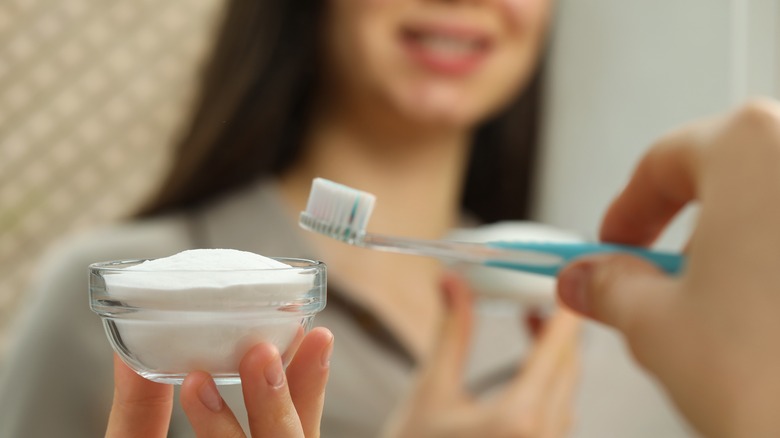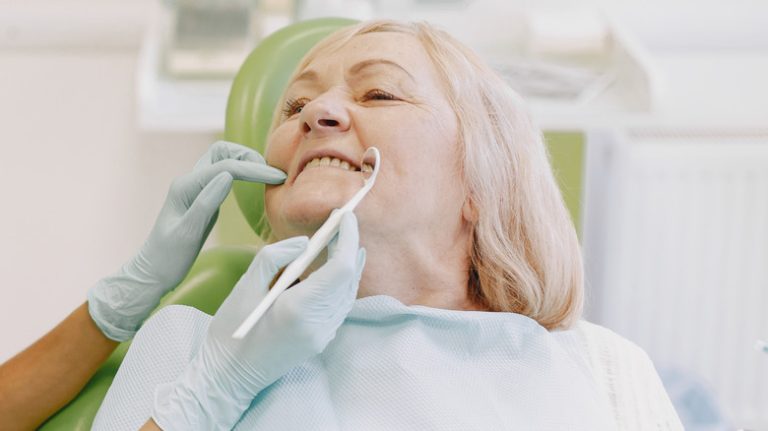Many Americans struggle with tooth stains. In fact, the American Academy of Cosmetic Dentistry (AACD) reports that teeth whitening is the #1 most-desired cosmetic dental procedure by patients (via Marina District Dentistry). So much so, that AACD 2024 survey data found that over 70% of people have had some form of teeth-whitening treatment during their lifetime.
Professional teeth-whitening treatments involve bleaching one’s teeth to have them appear more white in color. Typically performed in a dental office, some dentists offer patients take-home kits. Alternatively, many drug stores sell name-brand teeth-whitening products in the form of adhesive strips, gel pens, and more. “Teeth-whitening products are generally pretty safe to use,” dentist Alina Lee Lane told Livescience. However, they can come with risks including tooth sensitivity — as well as damage to the enamel or gums. Additionally, there are also some people for which teeth-whitening is not advised. Does this potentially include pregnant individuals?
It’s best to hold off on any teeth-whitening treatments

Professional teeth-whitening may not be suitable for those with gum recession, tooth decay, dry mouth, poor oral hygiene, or people who wear dental devices, such as braces (via Livescience). It’s also not recommended for pregnant individuals. Because professional-whitening agents contain hydrogen peroxide, experts at A Family Dental Center explain that it can exacerbate gum inflammation — which can occur in response to changing hormone levels during pregnancy. Similarly, hydrogen peroxide exposure can also heighten tooth sensitivity. Tooth sensitivity is not uncommon during pregnancy, as morning sickness can flush the mouth with enamel-eroding acid. A teeth-whitening procedure or product may end up causing additional damage.
Finally, experts can’t say for sure whether or not teeth-whitening bleaching agents may be hazardous to the fetus. Therefore, due to the limited scientific evidence, the American Dental Association (ADA) suggests erring on the side of caution and holding off on any teeth-whitening treatments until after the baby has been born and is not breastfeeding.
Consider these natural teeth-whitening options during pregnancy

If you’re looking to give your smile a makeover during pregnancy, be sure to speak to your dentist or physician. In some cases, you may be able to utilize a more natural whitening option. According to Hancock Village Dental, this can include the use of certain food items, such as strawberries. When squished down into a paste and applied directly onto the teeth for no more than five minutes, the natural malic acid in the fruit may help break down dental stains.
Alternatively, turmeric may also harbor some teeth-whitening superpowers, so try sprinkling it onto your toothbrush prior to brushing. However, if you’re not a fan of turmeric, try brushing with baking soda instead. To do so, create a paste by mixing some water in with your baking soda before applying the solution to your toothbrush. As you brush your teeth, the mixture may help gently scrape away tooth stains.
